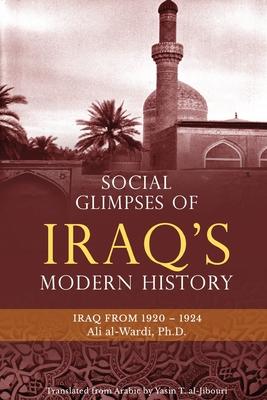To understand modern-day Iraq is to appreciate its formative years. How are we to understand the state of modern-day Iraq, which for many observers appears - in various ways - broken, divided, and beholden to deep structural ailments?
The famed Iraqi sociologist Ali al-Wardi (1913-1995) provides a unique attempt to make sense of how modern Iraq was formed by providing a crucial socio-political history of the formative years of the Iraqi state between 1920 and 1924. This was in the aftermath of WWI, the disintegration of Ottoman control, the rise of Arab nationalism, and the powerful presence of British officials and military officers who worked on shaping Iraq in ways that served their global imperial aspirations. Those four years defined Iraq as we know it today in many ways.
This book, for the first time available in English, is part of a more extensive work in eight Volumes titled "Social Glimpses of Modern Iraqi History (لمحات اجتماعية من تاريخ العراق الحديث)" of which this is the translation of one of its edition's volume six. The reader will not only get a unique insight into the role of the various powerbrokers that formed Iraq as we know it but will also shed light on the fundamental socio-political events that shaped the region.
